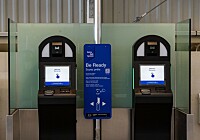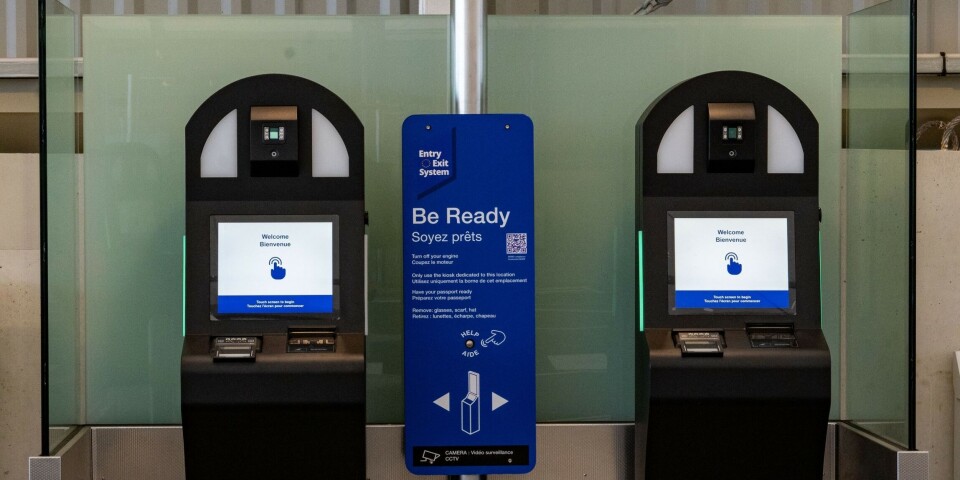New delay for EU biometric border controls reported
It is also suggested that some passengers may travel without handing over all biometric data to ease queues when the EES system launches
The introduction of the EU’s new digital borders Entry/Exit System is set to be implemented in 2024
Savvapanf Photo / Shutterstock
The launch date of the EU’s new digital border control system is reported to be delayed again - this time by around a month - to allow more time for travel hubs to install the required software.
The Entry/Exit System (EES), which will digitise border crossings into the EU and replace manual passport stamping, will also require non-EU visitors entering the bloc for the first time after launch to answer a series of questions about their visit.
Read more: Biometric border checks: what questions will be asked to enter France?
They will also be required to hand over biometric data, including fingerprints and a photo of their face.
Non-EU nationals living in France and elsewhere in the EU will be exempt from the EES requirements although there are fears they may be caught up in the queues.
Read more: New European Entry/Exit System: 9 key things to know in advance
There have been several previous delays to the launch, originally planned for 2021, with this autumn being the latest date officially given by the EU. While there has never been a precise 'on the record' date, the travel industry has recently been using a working launch date of October 6, which it says came from EU sources.
However, this has now been pushed back to November 10, with a “last resort” option of launching on November 17, if some border entry points are still not ready for the former date, the UK's The Independent reports, citing unnamed sources.
The president of French aiports body UAF, Nicolas Paulissen recently told The Connexion, that while October 6 was the current target, they expected it could start as late as November 15. He expected a formal date announcement in the course of August, he said.
When contacted by us, Christian Wigand of the EU Commission said: "The exact date will be determined by the European Commission and announced on the EES official website well in time for the start of operations. At the moment we do not have a date to communicate."
Will the system be ‘watered down’ at start?
There are fears that the introduction of the system will cause long queues, particularly at busy entry points such as major airports as well as the Eurostar’s St Pancras Terminal and UK to France ferry crossings where border controls are carried out on UK soil.
The latter two will see French border guards take biometric data before passengers board services.
Read more: Channel ferries: how will biometric passport controls work?
The taking of biometric information is expected to significantly increase the time it takes a traveller to pass a border. In some cases it is claimed that this could take up to seven minutes as opposed to roughly 90 seconds as now.
The EU is also considering a ‘relief valve’ to reduce wait times, and that at busy entry points they may not ask all passengers entering the bloc to hand over biometric data, to keep queues at a reasonable level, reports The Independent.
A British MPs' hearing earlier this year referrred to a 'soft launch' with 'precautionary flexibility measures'.
This would likely be temporary until the launch of the Etias system of online pre-approval for entry to the Schengen area, set to come into force around six months after the EES and closely linked to the digital border security changes. This is aimed at nationals of countries such as the UK and US, who are visa-exempt for short stays.
Applications for entry approval under Etias would likely require holders to answer some of the same questions as they will need to under the EES, potentially helping speed up the process once they arrive.
Once obtained, Etias approval will last for three years.
The EU is developing a smartphone app to help with the process - with France expected to adopt and adapt it for use at its borders - however it is unclear if it will be ready by the start of EES or if it will be able to collect any biometric data.
Read more: New biometric border checks: French app delays and photo issues




























